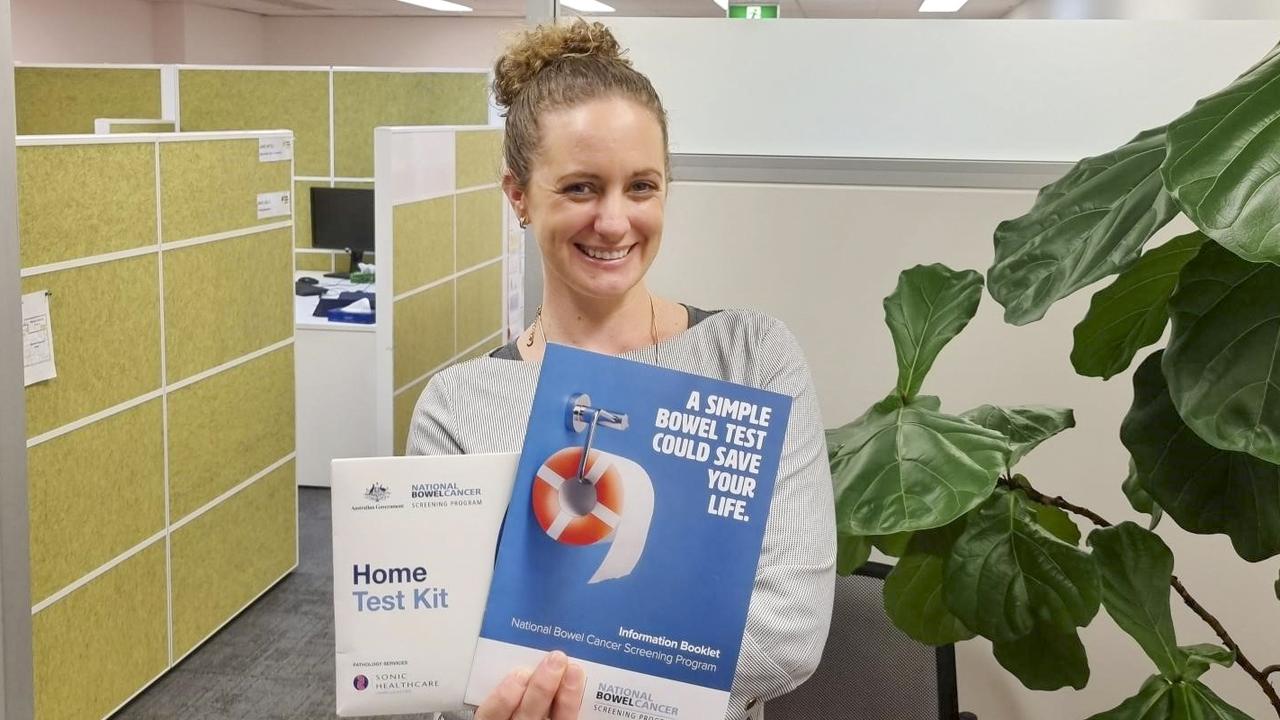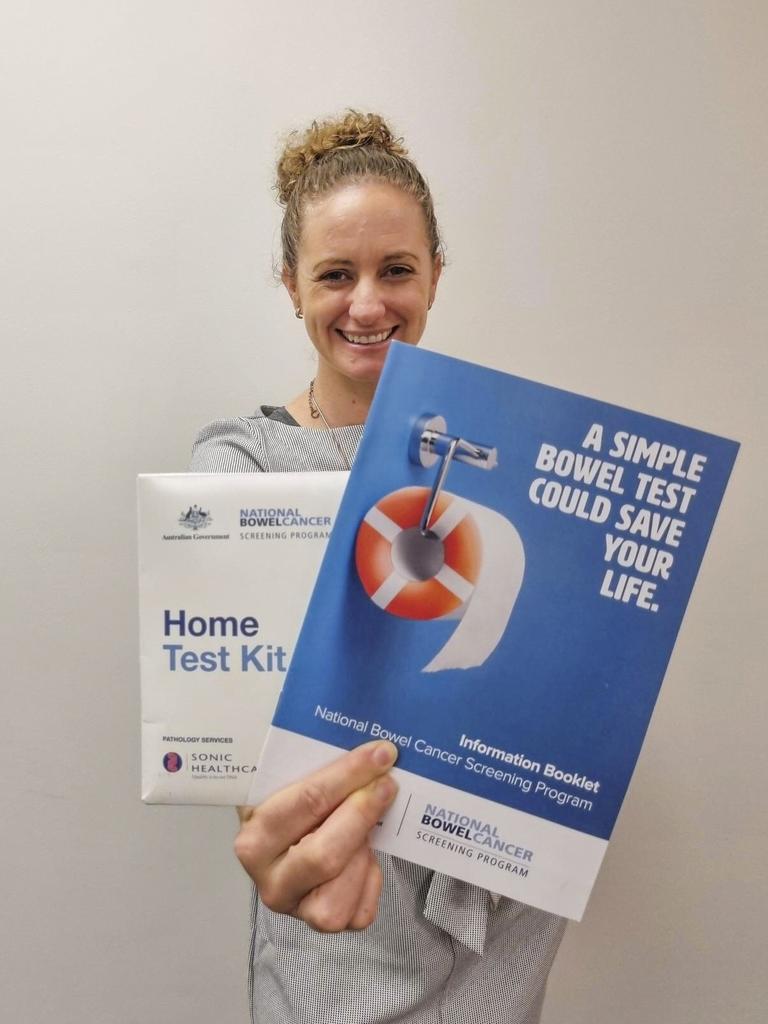Study to overcome testing barriers for second deadliest cancer
It’s one of the nation’s deadliest diseases claiming 100 lives every week but a lifesaving initiative hopes to change this.

News
Don't miss out on the headlines from News. Followed categories will be added to My News.
It’s one of the nation’s deadliest diseases claiming 100 lives every week, but this will hopefully change thanks to a lifesaving initiative.
The University of Southern Queensland (USQ) and Cancer Council Queensland is investigating barriers that may be causing Australians to take and return their bowel cancer test kits.
Lead investigator and Cancer Council Queensland research team member Belinda Goodwin said the study aims to encourage the public to get tested and increase bowel cancer screening participation.
“We know that many barriers to screening participation exist, but up until now, we were unable to estimate the degree to which each barrier prevented people from completing and returning the test, and who was most likely to experience each barrier,” Dr Goodwin said.
“This data provides a more reliable way to identify and measure barriers to home bowel cancer screening, which will help design interventions that address poor screening rates in the National Bowel Cancer Screening Program.”
Surveying more than 400 participants aged between 50 and 74-years-old, USQ researchers asked respondents to indicate which of the 89 listed barriers may discourage them from taking a home bowel cancer test kit.

The results revealed 50.9% of those surveyed believed they were up to date with their bowel cancer screening through another method, 44.7% would forget and 37.7% failed to make plans.
While 27.5% said they were embarrassed about storing the sample in the fridge, 27.3% said they felt unpleasant collecting a stool sample and 25.2% of respondents were concerned about hygiene risks.
The four distinct barrier types identified include disgust, avoidance, lack of autonomy and physical difficulties.
Younger participants indicated they were less likely to take the test out of disgust while males chose not to return their latest test kit as they were fearful of a negative outcome.
“This four-factor measurement tool provides a useful framework to measure and address barriers to home bowel cancer screening going forward,” Dr Goodwin said.
“It could also be used to examine the potential effects of various intervention strategies on different barrier types.”
With almost six in 10 people failing to take their free bowel cancer screening test when it arrives in the mail, the research will be used to work through these barriers and explore a more ‘user-friendly’ approach.
While Bowel cancer is the second deadliest cancer in Australia most cases can be successfully treated if detected early.
“While there are some excellent media campaigns promoting the importance of bowel cancer screening in Australia, our findings suggest intervention strategies that address some of the practical and physical barriers and concerns that limit people’s ability to do the screening must accompany these efforts,” Dr Goodwin said.
“This includes encouraging people to make specific plans and prompt them to use their screening kit and designing easier and cleaner methods for stool collection and storage.”
An article titled Barriers to Home Bowel Cancer Screening was published in the journal Psycho-Oncology.
Researchers are looking for participants aged between 50 and 74-years-old for the next stage of the project by completing an online survey.
To read the article click here or to complete the survey click here.









